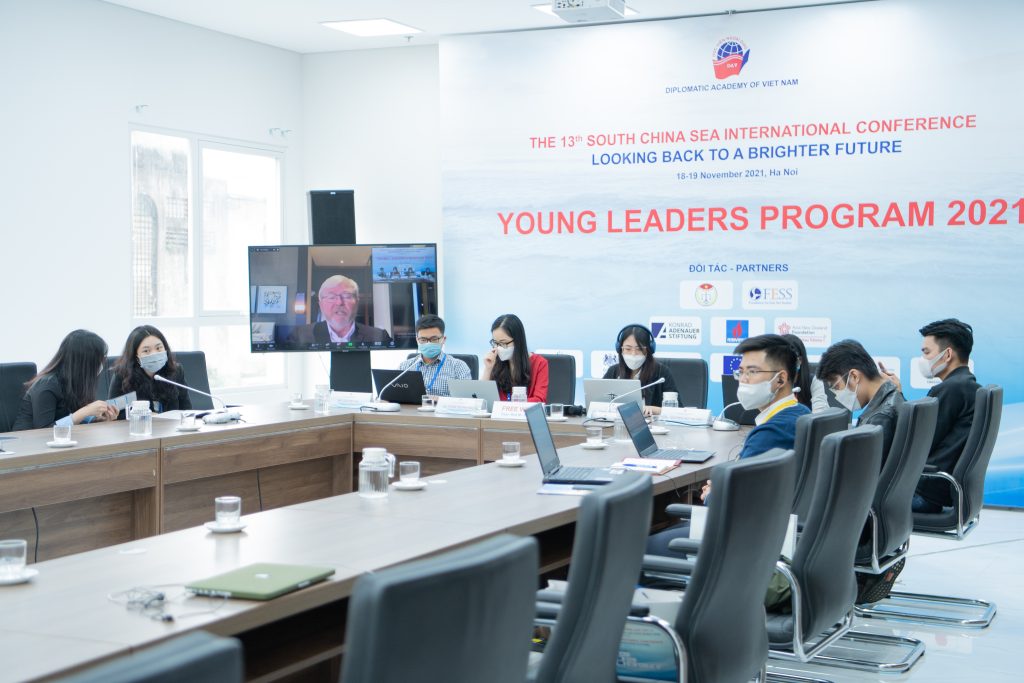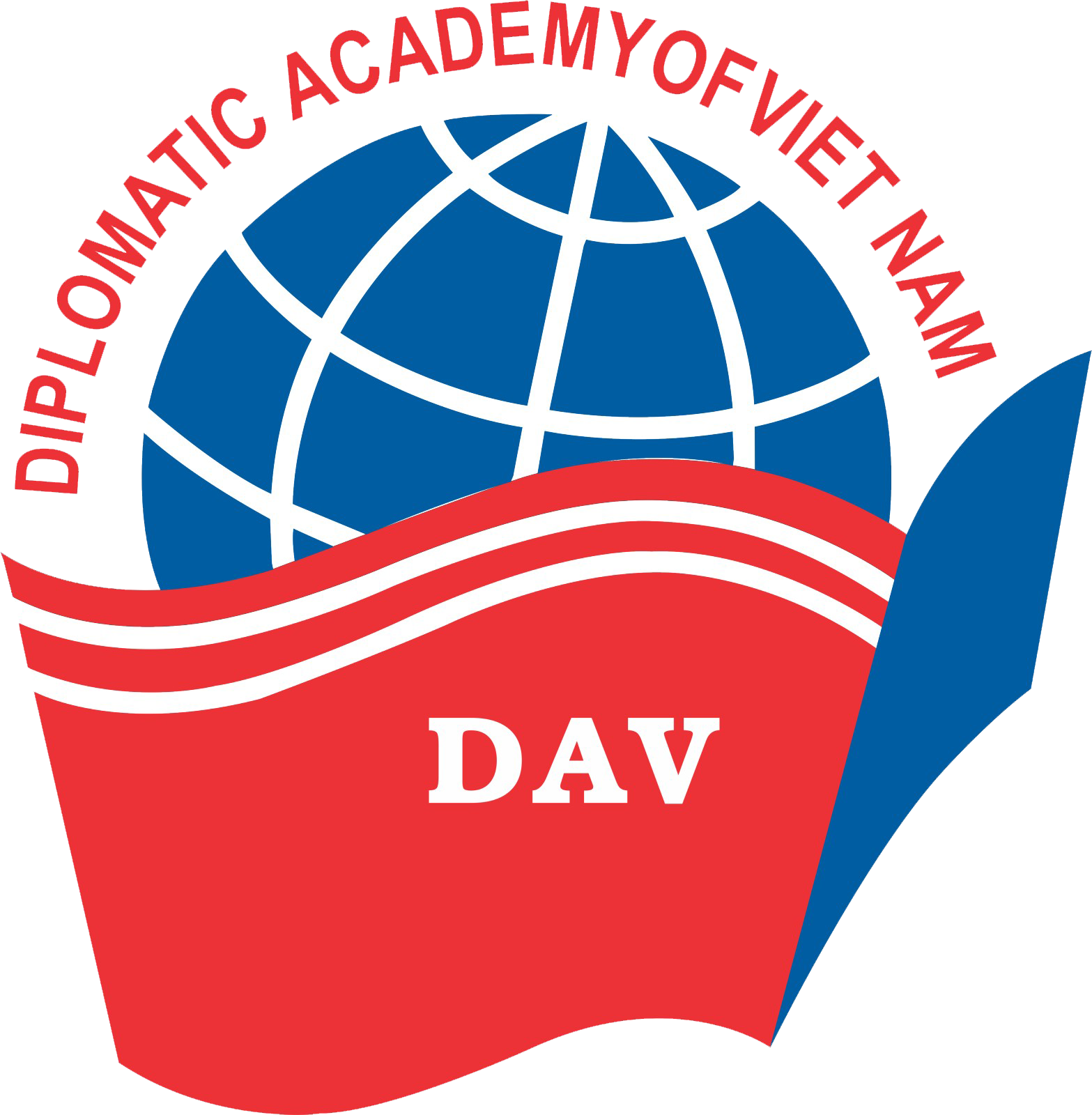
YOUNG LEADERS STATEMENT 2021
The participants of the Young Leaders Program 2021 attended the 13th South China Sea International Conference and raised 16 questions to the main sessions.
Following are the takeaways and statement of the Young Leaders Program 2021 in the 13th South China Sea International Conference:
Reflections from the sessions
– China’s rise, be it militarily or economically, is only a matter of time and before long, it will emerge first as the local hegemony and eventually assume the role of a global leader.
-The US-China strategic competition cannot be merely regarded as a new “Cold War” as it is far more complicated, especially since an arm rush is not the only contributing factor, but rather a herald for the ensuing economic conflicts of interest.
-The Indo-Pacific regional structure is now in turbulence, where institutional gaps are not yet filled by major powers, thus leaving room for middle powers and minilateral mechanisms to enhance their roles.
-The role of middle powers and regional institutions, especially ASEAN, should be promoted in order to build a rule-based regional order as well as improve existing crisis management capacity and de-escalation mechanisms.
-There is now an increasing need for meaningful, mutually beneficial negotiations between stakeholders in the South China Sea disputes.
-The progress of finalizing the Code of Conduct (CoC) must be accelerated and concentrated on.
-International law, particularly the United Nations Convention on the Law of the Sea 1982 (UNCLOS), will continue to serve as an important source of reference for dispute resolution in the South China Sea.
-The COVID-19 pandemic, increased security threats in the South China Sea and intensified US-China competition are all posing major challenges to global maritime supply chains and economic growth.
-Despite a need for marine scientific coordination cooperation in the region, challenges, including but not exclusive to the lack of practical implementation of agreements and differences in the priorities of stakeholders, still persist.
-While tracking systems can help in survey operations, research activities, and maintenance of navigation safety, the risks concerning the transparency and integrity of data need to be dealt with.
Contestable points
-In order to promote unity within ASEAN, the focus would first need to be put on resolving disunity.
-The lack of specific recommended sets of actions to minimize and resolve conflict in the region must be addressed.
-Even though the UNCLOS may be vague and ambiguous at some points, it still plays the central role in providing the legal frameworks for the South China Sea disputes and resolutions.
-Projection of ASEAN centrality in the South China Sea disputes via CoC-centric mechanism might compromise the UNCLOS centrality, given the flexibility of Member States to address the issues dynamically and the CoC is not a mechanism to resolve disputes but to mitigate the conflicts.
-The authenticity and legitimacy of historical evidence remain questionable, given the lack of an international validating mechanism.
-ASEAN-QUAD cooperation could be seen as a big opportunity, yet also a huge challenge for ASEAN nations, especially on issues such as ASEAN centrality or ASEAN-China relations.
-The assumption that China is actively utilizing its soft power over scientific research, and that it is actually necessary to put the ecological threats before the security threats in the region, do not appear as persuasive as they seem.
-The development gap between ASEAN member states together with the COVID-19 pandemic are creating barriers for said countries in reconstructing supply chains, accelerating digitalization, and developing blue economies.
Recommendations from the Young Leaders
-A strong deepening sense of cooperation is needed by all the states in order to tackle the conflict for a peaceful South China Sea.
-Perspectives from countries and international bodies having an interest in the South China Sea should be welcomed in related and relevant platforms.
-Pending to the progressive disputes settlement, the conflict prevention mechanism and preventive diplomacy shall be prioritised to promote peace and order at sea.
-In finalizing the framework of the Code of Conduct, consideration needs to be paid to aspects such as inclusiveness, the designated dispute resolution mechanisms and enforcement mechanisms.
-States should avoid the misuse of terminology and the misinterpretation of history and international law related to the South China Sea issue.
-Competing claims over historical facts cannot reach the desired solution for all parties because the disputes are deeply complex with strategic and national interests in terms of security, politics, trade, economic, and natural resources. Therefore, paying more consideration to the motives and interests behind the claims is better in handling the disputes.
-ASEAN needs to navigate its way through the competition of powers to retain its centrality in international issues.
-ASEAN should maintain its own selective, tactful approach when cooperating with outside partners to uphold unity and centrality.
-While the legal instrument is important in reaching disputes settlement, it is equally important for the ASEAN to look into other future-proofing issues such as marine environmental protection, climate change and sustainable international trade.
-Multinational cooperation among the involved states and regional forums on maritime and scientific cooperation should be focused on in order to create a peaceful and conducive environment for collaboration and economic recovery.
-Sufficient attention needs to be paid to non-traditional topics in the South China Sea, including natural resource management, maritime domain awareness, and management of data.
-The younger generations need to actively engage in and take charge of existing international issues.
